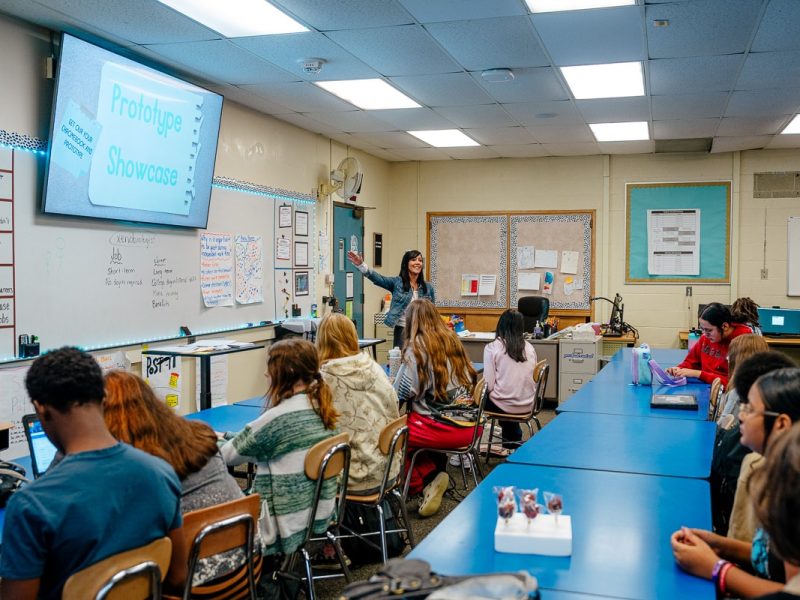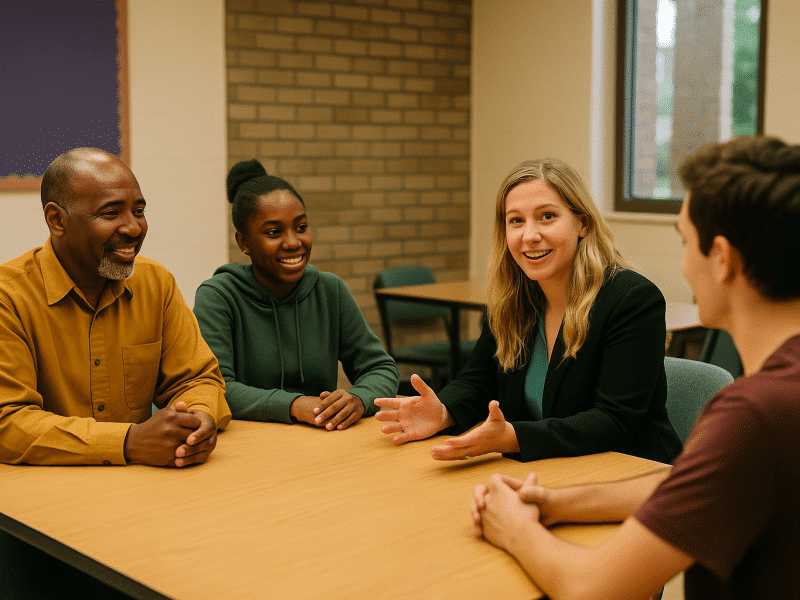Partner Partner Content Greater Flint Health Coalition + SNAP-Ed = a healthier community
The GFHC has added two new programs that will encourage and support Flint residents in eating healthy and moving more.
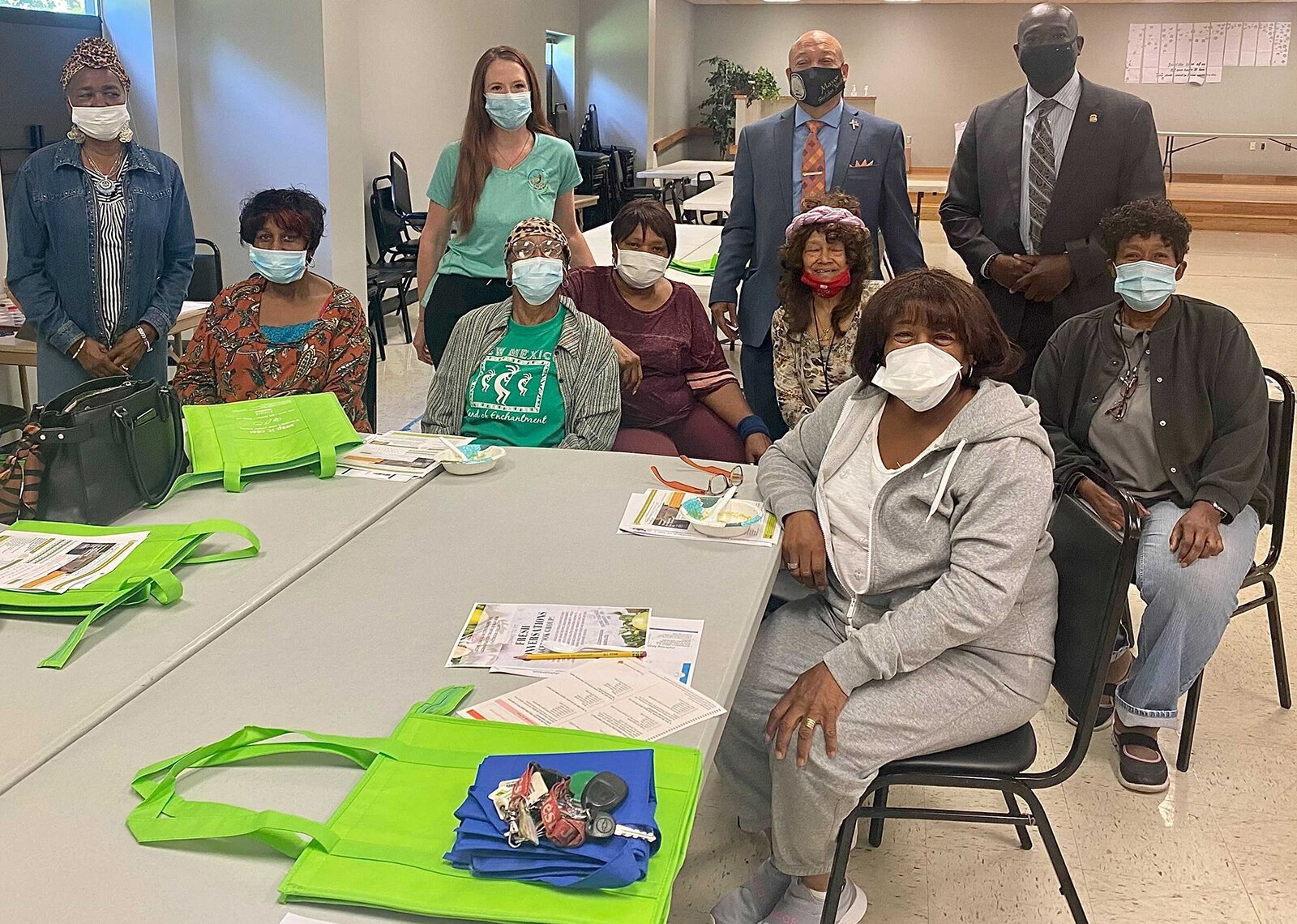
This article is part of Stories of Change, a series of inspirational articles of the people who deliver evidence-based programs and strategies that empower communities to eat healthy and move more. It is made possible with funding from Michigan Fitness Foundation.
The Greater Flint Health Coalition (GFHC) is focused on improving the health of Genesee County residents. To do this, they offer a variety of programs to engage residents in fun, easy ways that support healthy behaviors and connect people of all ages to resources that help them live healthier lives. So it just made sense for the coalition to add two new programs that support residents in eating healthy and moving more.
“In a community survey related to health, our residents reported a lack of healthy food access,” says Nichole Smith-Anderson, GFHC special projects director. “There are not a ton of grocery stores around here and also not a ton of knowledge around healthy eating. If people don’t know how to prepare a vegetable or never had it before, the likelihood that they are going to buy it is low, especially if they are on a budget.”
The first program added as a part of GFHC’s “Commit to Fit” programming is The Learning Kitchen, which is a program for adults to learn how to introduce healthier foods into their diets through cooking and nutrition education activities. Topics range from balancing and planning meals, stretching food dollars to maximize nutrition, and shopping strategies to cooking techniques. The Learning Kitchen classes are taught by area chefs and/or trained nutrition educators.
The second program is Fresh Conversations. It offers interactive sessions designed for seniors. The program promotes healthy aging in alignment with the Dietary Guidelines for Americans, which encourage people to eat a variety of fruits and vegetables, whole grains, lean protein, and healthy fats, and to reduce the consumption of sodium and added sugars.
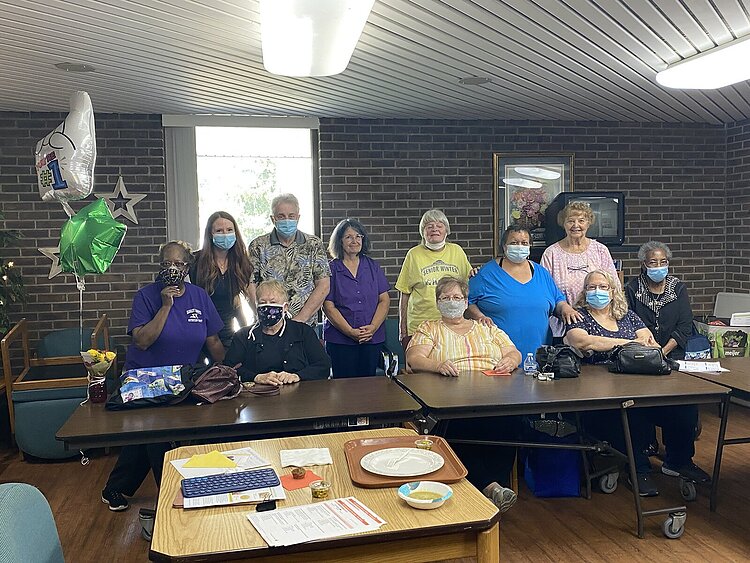
Residents of Burton Senior Center in Burton celebrate completing their Fresh Conversations program with Nutrition Educator Amanda Mattila.
Both programs are made possible through Michigan Fitness Foundation (MFF) Supplemental Nutrition Assistance Program Education (SNAP-Ed) funding. MFF is a State Implementing Agency of the Michigan Department of Health and Human Services for the education component of the Supplemental Nutrition Assistance Program. SNAP-Ed is an education program of the U.S. Department of Agriculture that teaches people eligible for SNAP how to live healthier lives. MFF offers grants to conduct SNAP-Ed programming throughout the state of Michigan.
“The SNAP-Ed classes are empowering people. It gives them practical ideas on how to add more fruits and vegetables into their daily lives,” Smith-Anderson says. “It does not have to be this massive diet overhaul, but simply how to eat healthier.”
The Learning Kitchen participant Toni Isaac says she’s already learned a lot from instructor Alaina Larrea’s classes.
“She gave us good information about ways to cook with more vegetables whether fresh, frozen, or canned. She taught us how to look for that nutrition information on the food label too,” Isaac says. “When you pick up a can of something, you don’t really pay attention to what is in it — added sugar, sodium, how much fiber. It was a really good session all the way around about these different things we take for granted.”
Since The Learning Kitchen is offered virtually, Larrea increases engagement by getting participants involved in hands-on activities during each class. She lets participants know which fruits and vegetables will be featured in class so they have the option to purchase them ahead of time and follow along during cooking demos.
A lesson about zucchini will show different ways to use it, perhaps as a stand-alone side dish, in a home-baked quick bread, or as a pasta alternative in dishes like spaghetti.
“The SNAP-Ed programs give people an idea of how to prepare fruits and vegetables and not be intimidated,” Smith-Anderson says. “There is a lot to be said for people being able to watch cooking demos and do it on their own and build that confidence. They realize, ‘I can do this. It isn’t too hard.’ All the recipes are really focused on being very simple and affordable. There are not too many ingredients, and that’s really important to make sure folks are successful.”
When comparing fresh fruits and vegetables to frozen or canned items, instead of showing the food onscreen and lecturing about its nutritional value, Larrea asks her students to find items in their own kitchen. Not only does this keep the class more interesting, but it also shows participants what’s in the foods that they are used to eating. It also helps dispel myths about food. They also learn that fresh, frozen, or canned fruits and vegetables all have a similar nutrient content, and that having frozen or canned fruits and vegetables on hand can be convenient and help to increase the variety of fruits and vegetables they consume. Frozen and canned fruits and vegetables can also be an economical choice for those who find fresh produce spoiling before they can eat it all. Isaac is now in the habit of considering the health and economic benefits of the foods she buys whenever she shops.
“The Learning Kitchen has definitely helped me. I know more now,” she says. “I think if more people took advantage of the Commit to Fit programs, we would find a better situation with our health in the Flint community.”
While shifting to virtual platforms was challenging for many organizations delivering programs, this was GFHC’s first experience providing SNAP-Ed classes, so doing them online seemed natural.
“There is definitely a benefit to having the virtual option. It makes it easier for people to participate and enables us to engage more individuals,” Smith-Anderson says. “Some folks are not comfortable being in a classroom environment, whether because of COVID, transportation, or other reasons. I’ve found many people enjoy participating from within the comfort of their own homes. Our virtual programming makes that possible, especially for those individuals who are not ready to partake in that social component or can’t.”
To prepare participants for the virtual adult classes, Larrea mails lesson handouts to them ahead of time so they know what to expect. She also sends them recipes that align with each lesson and Nutrition Education Reinforcement Items – for example, handy kitchen gadgets to make cooking easier.
“I go with a visual and hands-on approach,” Larrea says. “I like seeing the impact of watching the participants making the connection in their real lives. Now they can increase their health around that.”
While The Learning Kitchen remains virtual, Fresh Conversations has transitioned to being offered both on-site at senior centers in the county, as well as virtually for those who prefer to participate from their own homes. Larrea says virtual classes will continue to be important for increasing access to programming.
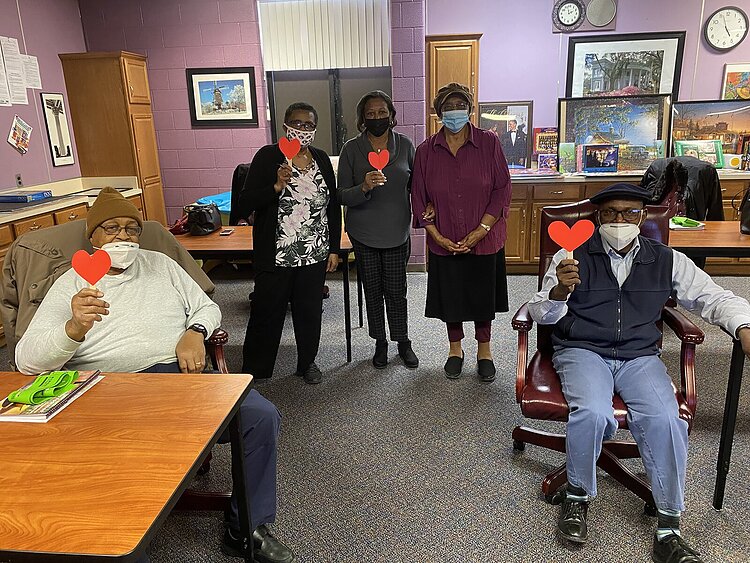
SNAP-Ed Nutrition Educator Alaina Larrea teaches seniors about cardiovascular health through synchronous virtual learning at Brennan Senior Center in Flint as part of the Fresh Conversations program.
“Having virtual classes really decreased the transportation barrier for participants,” she says. “And, while in-person classes are great, a lot of the time our adults have to find transportation or babysitters. Virtual delivery really helped reduce barriers.”
Larrea and Smith-Anderson agree that SNAP-Ed programming is helping to catalyze healthy change in Flint and throughout Genesee County.
“Offering SNAP-Ed programs is one of the many steps we’re taking to get our community in the healthiest state possible,” Smith-Anderson says. “SNAP-Ed is helping our community build awareness and knowledge skills around healthy living. People get overwhelmed and think they have to go run marathons to get healthy, and they don’t. We’re starting to see people making small but significant behavior changes, and that goes a long way towards improving health for the long term.”

